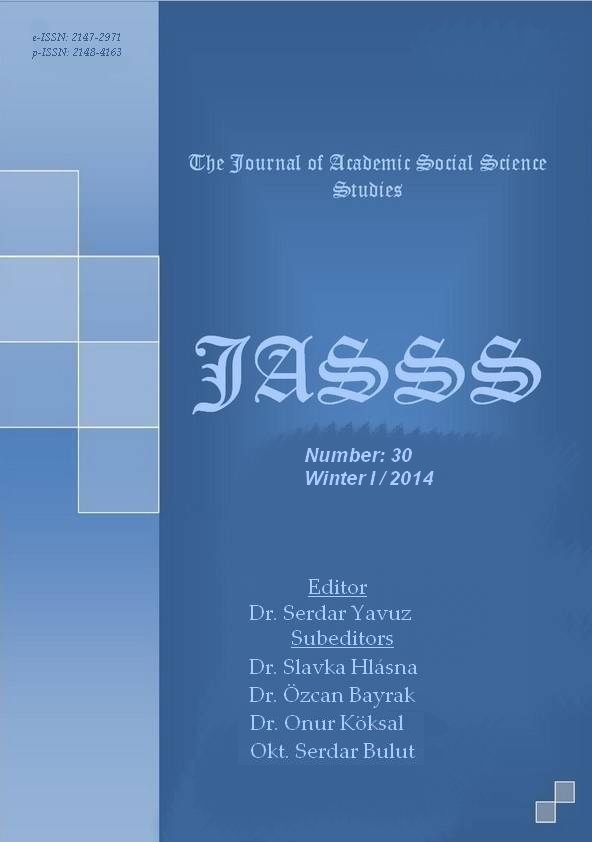FEN BİLGİSİ ÖĞRETMEN ADAYLARININ KİMYA KAVRAMLARINI GÜNLÜK HAYATLA İLİŞKİLENDİREBİLMELERİNE YÖNELİK GELİŞİMSEL BİR ARAŞTIRMA
Author :
Abstract
Bu çalışmada, fen bilgisi öğretmen adaylarının bazı kimya kavramlarını günlük hayat olayları ile ilişkilendirme düzeylerinin araştırılması amaçlanmıştır. 1.sınıftan 4.sınıfa kadar gelişimsel olarak planlanan bu çalışmada, öğretmen adaylarında nasıl bir değişim olduğu ortaya çıkarılmaya çalışılmıştır. Çalışmada gelişimci araştırma yöntemi kullanılmıştır. Çalışmanın örneklemini Recep Tayyip Erdoğan Üniversitesi Eğitim Fakültesi İlköğretim bölümü Fen Bilgisi Öğretmenliği programı 1, 2, 3 ve 4. Sınıflarında öğrenim gören toplam 159 öğrenci oluşturmaktadır. Çalışmada veri toplama aracı olarak günlük yaşamla ilişkilendirme testi (GİT) kullanılmıştır. Günlük yaşamla ilişkilendirme testi 14 açık uçlu sorudan oluşmaktadır. Öğretmen adaylarının kavramlarla ilgili sahip oldukları bilgileri ve düşünceleri daha derinlemesine açıklayabilmelerine olanak sağlamak amacıyla testte açık uçlu sorular kullanılmıştır. Günlük yaşamla ilişkilendirme testine öğrencilerin verdiği cevaplar anlama (A), kısmen anlama (KA), yanlış anlama (YA), Boş-cevapsız (B) kategorilerine göre sınıflandırılmıştır. Elde edilen bulgular doğrultusunda, öğrencilerin genel olarak ders kitaplarında veya öğretim sürecinde karşılaştıkları olaylara benzer durumları daha kolay açıklayabilirken farklı örnekler karşısında yeterli açıklamayı yapamadıkları belirlenmiştir. Bu durum öğrencilerin bilgileri anlayarak değil ezberleme yoluyla zihinlerine yerleştirdiklerini göstermektedir. Öğretmenler, derslerde dikkat çekici, merak uyandıran günlük hayat örneklerini farklı tekniklerle öğrenciye sunarak kendisinin deneyimler kazanabileceği öğrenme ortamları oluşturulabilirler. Derslerde ve yapılan genel sınavlarda fen kavramlarının günlük hayatla ilişkilendirmesine yönelik bazı sorulara yer verilmesi, öğrencilerin bu konulara daha önem vermelerini sağlayabilir. Bu ilişkilendirmeye sadece üniversite düzeyinde değil daha önceki öğretim süreçlerinde de önem verilmelidir.
Keywords
Abstract
This study aims to make a study of the science teacher candidates’ levels of associating some chemistry concepts with everyday life events. In this study which was planned developmentally from 1st year to 4th year, it was aimed to reveal out how teacher candidates change throughout the study. In this study, developmental research method was used. The sample of the study were 159 undergraduate students from 1st, 2nd, 3rd, and 4th grade of Elemantery Science Education Department at Education Faculty at Recep Tayyip Erdogan University. As a data gathering tool in the study, The Test of Associating with Everyday Life. The test is consists of 14 open ended questions. In order to enable students deeply express their opinions about the concepts, open ended questions were used in this study. The responses of the students to the test were categorized as Understood , Partially Understood, Missunderstood, Empty-Unanswered. As a result of the findings, it was understood the the students were able to explain the events that were close to the events seen in the books at school but were unable for the acquired information for different samples from life. This situation reveals that students try to memorize instead of trying to understand the given information. The teachers can provide students striking and intriguing life events with different techniques in order to create a learning environment in which students can have experiences. In the exams, placing questions about associating science concepts with everyday life may direct students to give more importance to these subjects. Not only must this association be taken into consideration at University level but also at lower levels.





